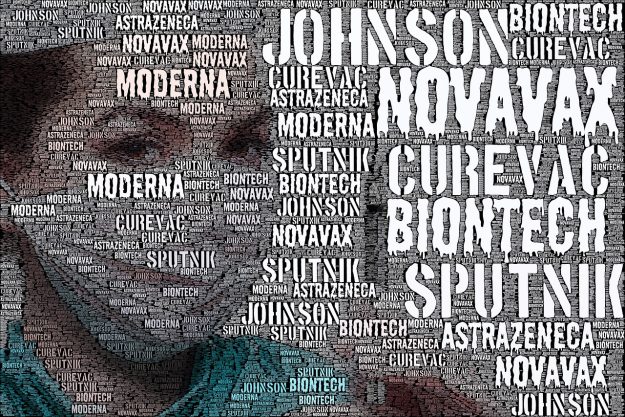Despite largely being taken over to profit big tech companies, open source continues to be a positive influence in areas that matter.

Welcome to the first ever Monday Morning, my start-of-the-week column that will mainly be my thoughts and observations, mostly focused on free and open source software.
This first column was going to be something of a downer, about my disappointment and disillusionment that open source now seems to benefit big business much more than it does the everyday computer user, until I turned on the radio Friday afternoon and heard a story on National Public Radio that gave me hope.
That I even heard the article is, in itself, something of a strange synchronicity. For years now, beginning when I shuttered my retail store in 2012, the only place I ever listen to the radio is when driving, and since March of 2020, when the first lockdown began, I’ve done very little driving. For the last two-and-a-half years, a trip a week to the dump to drop off our trash and recyclables, and an occasional drive to town to pick up groceries (or to go through the drive-through at Wendy’s, Hardee’s, or Aunt Bea’s) is about it for me.
On Friday I made one of those trips out of the house, first going to the dump and then on to Pilot Mountain, the closest town to the rundown old farmhouse in the country that I’ve called home since 1997. After going through the drive-through at McDonald’s, I drove to the town’s recreational park to sit in the car under the shade of a tree to eat my two kid-size cheeseburgers and listen to the radio, while I looked out over an empty ballpark that was waiting for school to let out.
As I ate, a story came on All Things Considered, NPR’s afternoon long-form news program, about a new inexpensive-to-produce and evidently quite effective Covid vaccine, Corbevax, that was developed by the Center for Vaccine Development at Texas Children’s Hospital. Since development, the vaccine has been successfully brought to market in India, where the government has approved it for all people 18 and older, and where it’s already gone into the arms of more than 70 million Indian residents.
Months earlier I’d heard about this project, but didn’t pay it much mind because I figured it would end up being yet another false promise. Yes, two-and-a-half plus years of living in relative isolation (and six years of MAGA being a constant thing) has turned me into something of a jaded soul.
Corbevax Inspired by Open Source Principles
Although the phrase “open source” wasn’t used at all in NPR’s article (I’m sure of this because I have the transcript on screen as I write), it was obvious that the vaccine had been inspired by the open source development model, which had allowed it to not only be successfully developed, but developed at a price much, much lower that Pfizer’s and Moderna’s vaccines, which don’t fit the budgets of most developing nations.
The vaccine was developed using proven long established methods for developing vaccines that are no longer covered by patents, if they ever were, and with no new patents being added to the work that was done for this particular vaccine. This means there’s practically no licensing costs to biotech companies in countries like India, which means they can afford to manufacture the vaccine and get the locals vaccinated.
It was also developed with an eye toward cultural diversity, another important aspect of open source. In this case that means the developers were careful to make sure that no animal products were required to manufacture the medicine.
“Our technology is considered vegan and therefore we can develop this vaccine as a halal certified vaccine,” Maria Elena Botazzi, a co-director at the Center for Vaccine Development and one of the two people who invented the vaccine, told NPR.
Because of this, the vaccine can be brought to market with little push back in countries with large Islamic populations, which have religious restrictions on the consumption of meat, or in areas with large Hindu or Buddhist populations, that largely don’t consume meat at all. This foresight is already bearing fruit, and not only in India. The Indonesia-based biotech company Biofarma already has plans to manufacture Corbevax for distribution in its home country.
African nations are also showing interest in the vaccine.
“Corbervax has been approved by the Botswana Medicines Regulator Authority,” Mogomatsi Matshaba, executive director of Botswana-Baylor and an adviser to the Botswana government on COVID-19, told NPR. He said that the vaccine hasn’t been used in the country yet, but he expects it will be used there, as well as in other African countries.
“The plan is to start mass production in Botswana,” he said.
As a long time advocate of open source, I listened to the story with relish, and on my way home it occurred to me that this bit of good news flies in the face of my thoughts about open source failing to live up to its initial promise.
The negatives remain true: the idea that started life as “free software” and then morphed into “open source,” these days largely helps greedy multinational enterprises create technologies for running massive compute architectures whose only purpose is to make the rich richer and keep stock prices steadily climbing.
However, at the same time, open source, and the ideology behind it, are being used in ways that are improving (and even saving) people’s lives — as the NPR article illustrated.
I decided then and there that this week’s inaugural column wouldn’t be about my malaise over who or what open source serves or doesn’t serve, because here was proof that no matter how much it may be misused, the open source development model has served as the inspiration to produce an affordable vaccine to fight a global pandemic; a vaccine that is already benefiting tens of millions of people, and helping save the lives of people who would otherwise be unprotected and totally at the mercy of the whims of the disease.
This, I figure, is a small but important drop in the bucket.
Of the People, by the People, and for the People Development
A short time later, while at home going through the open source news of the day from the FOSS Force News Wire, I came across yet more news that illustrated the good that just the idea of open source can accomplish.
From an article in Techdirt (always one of my favorite websites) I learned that, “[T]he Office of Science and Technology Policy at the White House announced that they were updating policy guidance to mandate that all taxpayer-supported research should be immediately available to the public at no cost.”
The article also indicated that this is no pie-in-the-sky nonsense with zero chance of reaching fruition, which is the case with too much “good news” coming out of the U.S. government these days. Although there are a few question marks attached, there are also already deadlines in place.
“According to the actual policy guidelines, U.S. departments and agencies have until the end of 2025 to make this change (though, it’s not clear that there’s any remedy if they don’t),” Mike Masnick wrote. “This is really huge — and it seems to have come out of nowhere.”
Indeed, this is huge news, and it walks hand-in-hand with the story on Corbervax that I’d heard less than an hour earlier. Laying aside the huge amounts of money the U.S. government promised Pfizer and Moderna upfront to purchase their vaccines once available, removing much of their risks, the government also spent billions of dollars in taxpayer money on research and development for products that are now patented by private sector players, even though R&D was largely funded by “we the people.”
In May, 2021, Healthaffairs.org reported, “[T]he Congressional Budget Office estimated that the Biomedical Research and Development Authority alone has spent $19.3 billion on COVID-19 vaccine development. In addition, Lisa Cornish projected $39.5 billion in US spending.”
Although not a certainty, because the government has its own way of figuring things, it would seem that if this new policy from the Biden administration had been in place when the Operation Warp Speed deals were cut, then many or most (perhaps all) of the patents attached to the vaccines and now owned by big pharma companies would be part of the public domain.
If you’re thinking that neither this policy change nor the development of Corbervax by Texas Children’s Hospital comes close to meeting any kind of definition of open source, you would have a point. But there is no denying that both projects were born, knowingly or not, out of the open source idea of sharing instead of owning IP.
As Jim Whitehurst would have put it back in the days when he was running things at Red Hat: they are both in tune with the “open source way.”
Christine Hall has been a journalist since 1971. In 2001, she began writing a weekly consumer computer column and started covering Linux and FOSS in 2002 after making the switch to GNU/Linux. Follow her on Twitter: @BrideOfLinux









Christine,
actually some bad men are paying a lot of money to scam an exterminate all the human beings.
Nobody believes in this tale yet, but some stupid people wants to continue betraying the whole human species.
The tale of the disease and the bug with superpowers is impossible and a big lie. You don’t know nothing about medicine and don’t have even a bit of common sense.
Does Corbevax cause blood clots or mycarditis? With a 99.9% COVID survival rate, the cure is worse than the disease.